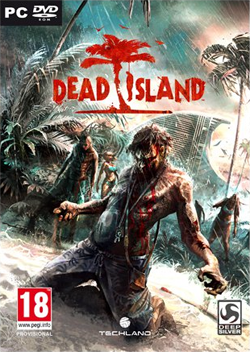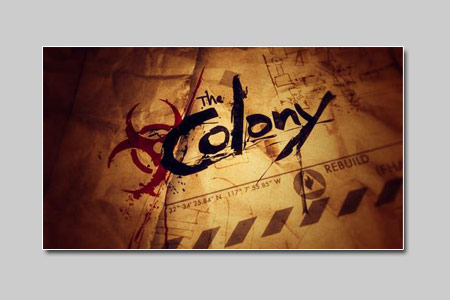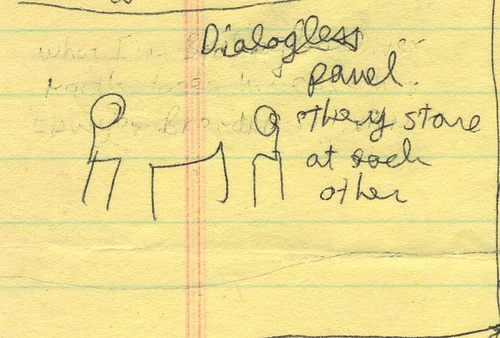The next action-packed(?) installment on our schedule for March was WonderCon, which happened this last weekend at the Anaheim Convention Center. Exhibiting at WonderCon was actually a fairly late decision for us, since even though it moved down to our neck of the woods for 2012, we had free professional badges all set to go and were thinking about just kicking back and enjoying it as attendees like we had in 2011. Then we got the news that we’d been wait listed for San Diego Small Press, and since that had become a “maybe” decided it would be best if we stayed on the exhibiting radar with the Comic-Con International organization, despite WonderCon being so close to the dates for Emerald City. For those of you who aren’t aware, San Diego Comic Con, APE, and WonderCon are all staffed and managed by the same folks, and there actually is a sort of “points” system they maintain for exhibitors based partly on the amount and frequency of their presence at CCI events. San Diego needs no help, but for purposes of stocking San Diego they look kindly on those who come to be part of their lesser attended shows.
Now if WonderCon had still been in San Francisco this year that might have been too expensive a proposition to squeeze into the budget, but fate intervened in the form of the Moscone Center deciding to do renovations for the first half of 2012 and thus leaving the convention bereft of its usual home. San Francisco’s tourism people, at least from the scuttlebutt I’ve heard, do not especially care about keeping Comic-Con International happy. While I hesitated to take our sour experience with the Chevy’s restaurant at WC ’11 as an indicator of general trends, it seems there might very well be a feeling given off by the visitor’s bureau of “we don’t need your kind”, which is odd as I’m sure the Bay Area must have at least some form of nerd community. Are we still being dunked in trash cans up there? If so, are we being put in the right ones? I don’t know if nerds count as compostables or not.
I presumed that the Moscone Center’s renovations came with an understanding that when they were done, WonderCon would be welcomed back north with open arms, but CCI has gone on record on their facebook page asking for people wanting it to return to SF to please make their voices heard to the Moscone Center management. That doesn’t sound like something you’d request on a done deal, so at this point your guesses are as good as mine on what’ll happen for 2013.
You know what city really does seem to want to get some nerd dollars filling its coffers? Anaheim. Anaheim hosted both Wizard World and AM2 last year, and was one of the cities campaigning to try to steal San Diego Comic Con from San Diego. Comic Con decided to stay at least until 2015, but it lit a fire under San Diego to get some much needed expansions and improvements into the works. SDCC has a clout with its host city that WonderCon just doesn’t seem to share, even though attendance last year seemed quite admirable. So while I can’t speak for what goes on behind closed doors, it makes sense to me that WonderCon might try out a new venue that was actually eager for its presence. Anaheim wanted SDCC, but WonderCon’s sudden homelessness represented an opportunity for the next best thing. It’s possible Anaheim even approached CCI about it first, rather than vice-versa.
If you’re wondering why I’ve spent so many paragraphs talking about this, it’s because I think it’s actually a good thing for exhibitors to keep an eye on what’s happening with the conventions they might frequent. Heck, it’s even a good idea for attendees. An established show making a major location move like this can really throw your plans in a jumble, and while it’s not a good idea to put too much faith in rumors, you can use them judiciously to try to avoid being caught entirely off-guard, or perhaps seize on opportunities.
So, I should probably get around to talking about the show itself. The forecast was rain and cold for most of the weekend, and while the rain confined itself mostly to Saturday, I’m sure it was an ironic twist for a San Francisco convention “vacationing” (so far) in sunny Southern California. I had worried that the weather might keep people away, but if it did you would never have noticed. Friday wasn’t very busy, but Saturday and even Sunday gave way to a packed lobby and a packed exhibit hall. I haven’t seen a comic convention be that busy on Sunday since, well… San Diego. Unlike San Diego, WonderCon still lets you buy your tickets at the door, but delivers on some big names and big panels because it’s still part of the CCI family. It would have been entirely possible to wake up on Saturday morning, have a leisurely breakfast, and then decide, “By Jove, I think I’ll check out that WonderCon business the radio’s been squawking about!”.
Now lest I give the impression that attendance was anywhere near San Diego Comic-Con, it was not. The exhibit hall being packed is an obvious sign of a good turnout, but the crowded state of the lobbies, hotels, and parking lots were due to several other unrelated conventions playing neighbor to WonderCon in the same weekend. Despite the sprawling campus represented by the Anaheim Convention Center (the largest on the west coast, according to their publicity), the on-site parking seems to be abysmally limited. We had no problems during Wizard World or AM2, and I don’t know how well they would have coped had WonderCon been on its own, but by Saturday morning people were being turned away and forced to park at overflow lots several blocks away from the halls (still paying for the privilege, of course). There were shuttles, but you can imagine how glad Dawn and I were that one of our friends let us stay with him at the Hilton on Thursday night, which has a lot close enough for loading purposes. We had our own (cheap but close) place to stay on Friday and Saturday and have learned to leave our set-up mostly in place, so that was easy enough, but Sunday I had to drop Dawn off and find some remote street parking because they literally had police cars parked across all the entrances.
Happily, at the end of the day they let exhibitors into a parking lot right across from the back of the hall so we could load our things. Unhappily, they made us pay the $12 all-day flat parking rate to do so, but in retrospect I suppose I’ve done that at other conventions; it probably just stung in this case I had to walk several blocks to grab the car, and then we were in and out of the paid area in 20 minutes. If I’d used the designated overflow parking I would have been hit for money twice.
As far as the staff of WonderCon, I have no complaints, they were very helpful and informative all through the show, and even provided free plastic tarps to all exhibitors on the offchance that the forecast rain might cause leaks (it didn’t, but a nice gesture nonetheless). I can’t downplay a complaint from several of my fellows in Artist’s Alley and Small Press, though, that the way the exhibit hall was laid out somewhat cut us off from the main body of the floor. The culprit was that this particular hall’s bathrooms were out in the middle of the floor inside of these big brick buildings, instead of being on the perimeter like I remember with the other Anaheim halls. If they do stay in Anaheim I hope they can move to a different hall or otherwise figure something out, because it was definitely impacting the flow of all that juicy traffic. I think Small Press in particular was feeling it because of a combination of being in the lee of one of the bathroom buildings and having high draperies blocking sightlines unless you took the time to walk down the rows.
As for us, we still got our share of people coming by, enough to keep Dawn doing her sketch cards almost constantly. We had a young lady by the name of Stephanie who made the most flattering purchase possible for creators who occasionally struggle with self-esteem… she bought and read Issue #1 last year, and this year came back to buy Issue #2 and #3. Several friends, and at least one complete stranger, walked away with freshly purchased Zombie Ranch t-shirts.
I would be remiss to leave out some of the new faces we got to meet in person, such as Robert and Sarrah Wilkinson who are not only Zombie Ranch readers, but fine webcomic creators in their own right over at their Planes of Eldlor lair. In addition we got to meet some of the team behind our Print-On-Demand services at Ka-Blam, and made the acquaintance of one R. B. LeMoyne, cool dude and mild-mannered reporter for the ComicBooked.com news site, who has his own thoughts on WonderCon 2012 available here. Since I didn’t get to see too much of the show beyond our table, he’s got some good dirt on the panels that occurred.
So that’s the second of our “firsts” for March Madness put away. Next up is the big climax of Emerald City in Seattle, but I won’t be writing about that until April, so I’ll have to figure out some other form of madness for next week. I think I have an appropriate topic. See you then!










